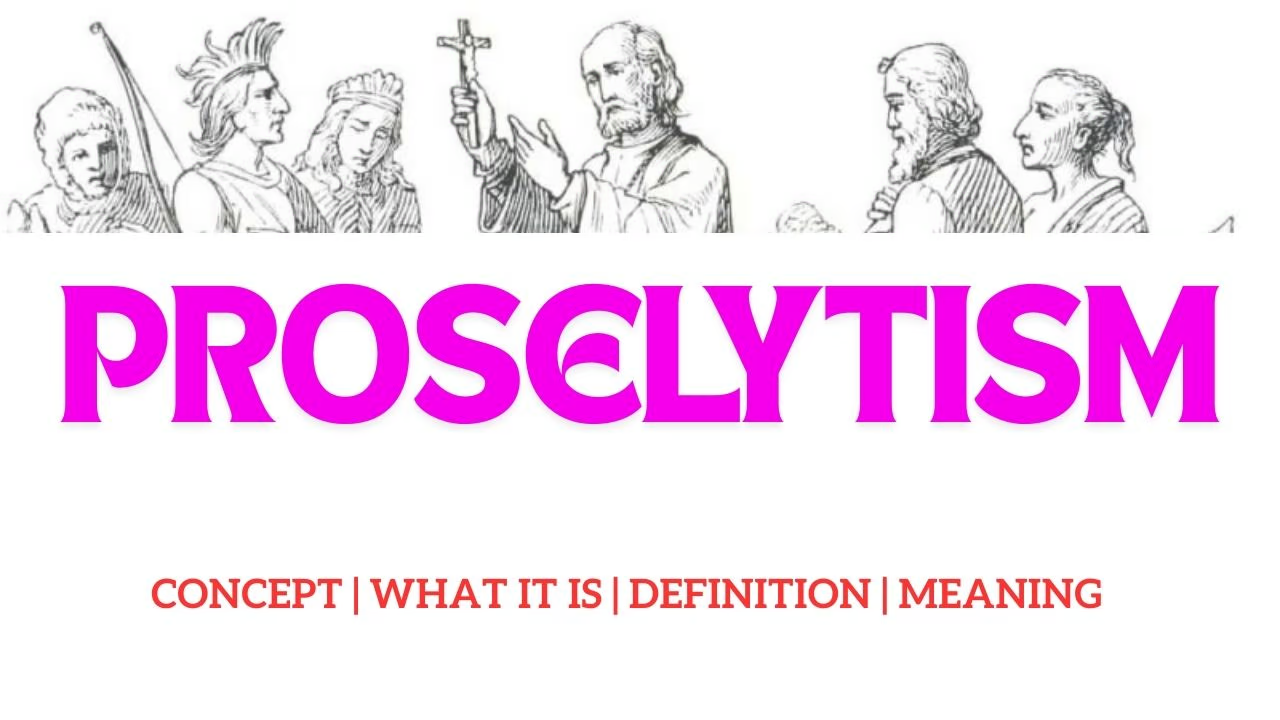Proselytism Definition and Meaning: We explain what proselytism is, the origin of the term and its various meanings. Also, religious and political proselytism.
What is proselytism?
Proselytism is the act of trying to convince others to convert to a religion or adopt a point of view, through preaching, oratory and different argumentative and discursive strategies.
This term is derived from the word proselyte, synonymous with adept, follower or convert. The Jews used it in biblical antiquity for those foreigners who adopted their religion. You must read about Seminar once!
It comes from the Greek prosêlütos, “newcomer (in a foreign country)”, but it came to Spanish through ecclesiastical Latin (prosélytus), used in the Middle Ages as a synonym for “new convert”, that is, for those who had recently adopted the Christian religion. So proselytism was the effort to obtain new proselytes for one’s own religion or for one’s own point of view.
Thus, although the term proselytism is not exclusive to Christianity, it is very present in its history, since this religion considers evangelization a commandment, that is, to impart the doctrine of the Christian gospels to all those who profess a different religion, or have no religion at all.
However, a distinction is often made between evangelization and proselytism, since the latter has negative connotations, that is, it is often considered a conversion through fallacious, insincere, deceitful or manipulative strategies.
In everyday language, proselytism is considered a form of propaganda or disloyal ideologization, more committed to swelling the ranks of followers of one’s own cause in whatever way, than to the debate around the truth and the legitimate conviction of a third party regarding our point of view. In this way, the negative connotation predominates. Maybe you should definitely read about Spanish colonization once!
Religious proselytism
Religious proselytism is very common, not only in Christian churches, which consider “spreading the word” to be part of their religious duties.
In fact, most creeds consider it legitimate when it consists of gaining followers through purely spiritual persuasion, that is, limiting themselves to what the religion itself proposes and the arguments it uses to support its worldview. This is known, as we said before, as “preaching,” “conversion,” or, in Christianity, “evangelization.”
On the other hand, it is condemned when it is carried out through accusations against other religions, or through the use of moral, physical, or verbal coercion. It is also considered deceitful when it resorts to the offer of economic, social, or political powers and benefits, that is, resorting to anything that is not strictly in the mystical and spiritual realm.
In the latter cases, most churches condemn proselytism, considering it an unfair practice between the different existing religions, contrary to the ecumenical spirit and religious tolerance.
Political proselytism
In the world of politics, proselytism has negative connotations. Political proselytism consists, logically, in gaining followers for a political cause through practices considered “disloyal”: promises, bribes, false accusations, among others, which deviate from the healthy exercise of politics, which should be the objective exchange of ideas and proposals.
Proselytism is condemned and punished in different legislations, in some cases legally and juridically, in others only from a moral point of view. Everything depends on where the limit is drawn between tolerable practices and those considered unjust or demagogic.
